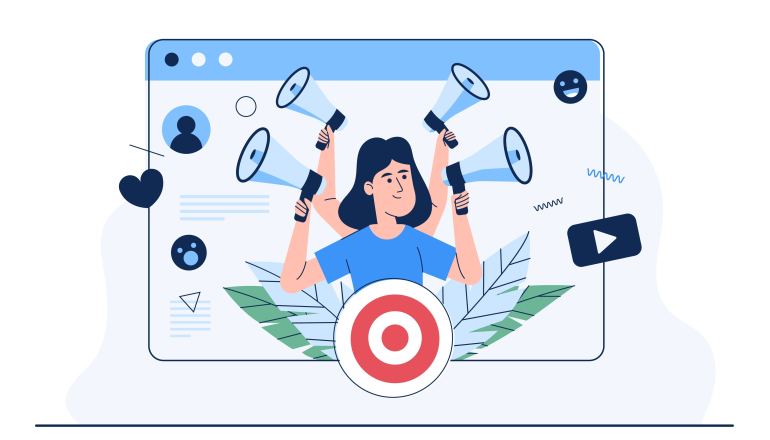
Why Personalization is Key to Successful Marketing Campaigns
With the rise of big data and advanced analytics tools, businesses now have access to a wealth of information about their customers, including their browsing and purchase history, demographics, and social media activity.
Personalization is becoming increasingly important in marketing. It allows businesses to build stronger relationships with their customers, targets their marketing efforts more effectively, stand out in a crowded marketplace, increases their return on investment, and build trust with their customers.
Despite the clear benefits of personalization, many businesses still need help to implement it effectively. For example, some companies may need more data or technology to personalize their marketing efforts. In contrast, others may need to learn how to use their data effectively—exploring why personalization is critical to successful marketing campaigns and how businesses can effectively implement it in their marketing strategies.
Building Stronger Relationships with Customers
One of the most significant advantages of personalization is that it allows businesses to build stronger relationships with their customers. According to a study by Epsilon, personalized emails have an open rate of 29% higher than non-personalized emails.
By using personalized, targeted ads such as emails, customers are more likely to engage with relevant content, and customized marketing messages are much more likely to resonate with individual customers than generic ones.
Targeting Marketing Efforts More Effectively
Another reason why personalization is important is that it allows businesses to target their marketing efforts more effectively. A study by Accenture has shown that personalization can increase revenue by 15% and reduce acquisition costs by 50%.
With this in mind using analytics tools, businesses now have access to a wealth of information about their customers, including their browsing and purchase history, demographics, and even their social media activity. This can enable your business to specify your target audience.
Standing Out in a Crowded Marketplace
Personalisation also helps businesses to stand out in a crowded marketplace. With so many companies vying for customers' attention, it can take time to make an impact. However, a study by Infosys found that 80% of consumers are more likely to purchase when brands offer personalized experiences.
Personalized marketing campaigns can help businesses differentiate themselves from their competitors by highlighting their unique value proposition and offering customers something tailored to their specific needs and interests.
Increasing Return on Investment
Personalization can also help businesses to increase their ROI. By targeting their marketing efforts to specific segments of customers, companies can reduce the cost of their campaigns by reaching only the most relevant audience. A study by Boston Consulting Group found that personalized promotions can increase sales by 10% or more. In addition, by providing customized offers and discounts, businesses can increase the likelihood of a deal, thus increasing their ROI; this will reduce costs in your campaign and increase overall sales.
Building Trust with Customers
Personalization can also help businesses to build trust with their customers. Trust is critical in any business relationship and particularly important in marketing campaigns. In a study by Epsilon, personalized emails are more likely to be trusted by customers and have a higher click-through rate. As mentioned, customized emails can help a business build trust by showing customers that they understand their needs and are interested in creating a relationship with them.
The Role of Personalization in Driving Successful Marketing Campaigns
Personalization is critical to successful marketing campaigns. It allows businesses to build stronger relationships with their customers, targets their marketing efforts more effectively, stands out in a crowded marketplace, increases their ROI, and build trust with their customers. With the rise of big data and advanced analytics tools, businesses now have access to a wealth of information about their customers, which they can use to create personalized marketing campaigns that resonate with individual customers and drive more sales.
Personalization helps businesses meet these demands by providing customers with experiences tailored to their specific needs and interests. By providing a personal touch, companies can create a sense of connection with their customers, leading to increased loyalty and repeat business.
However, it's important to note that personalization is not just about using customers' data to send targeted messages. Still, it's also about respecting and using their data ethically. Businesses should ensure that they have the customers' consent before collecting and using their data, and they should also be transparent about how they collect and use the data.
Using data and advanced analytics tools to create personalized marketing campaigns, businesses can target their marketing efforts more effectively, stand out in a crowded marketplace, increase their ROI, and build trust with their customers.


Leave a comment
Make sure you enter all the required information, indicated by an asterisk (*). HTML code is not allowed.